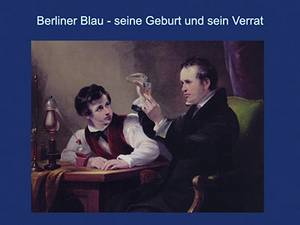

Moderation: Wolfgang Gerhartz
Have you been overlooked again for this year's Nobel Prize? Of course you're right, this disregard is a blatant injustice! But what can you do? The selection criteria are obscure, and those in Stockholm do what they want. But there are alternatives, just as glamorous and only for the best of the best. If you're curious, " we'll help you "!
Link to the lecture:
https://us06web.zoom.us/j/86190573632?pwd=fK8Vlzj2zWbdAhBTbGr0JeFVZzIfXQ.1
online lecture by Klaus Roth on 18.04.2023, 3 p.m.
Moderation: Wolfgang Gerhartz
The name Dieter Oesterhelt is closely associated with bacteriorhodopsin, which he discovered and which performs incredible feats in the cell membranes of the archaebacterium Halobacterium salinarum: When exposed to light, it transports protons from the cell interior through the membrane to the exterior. This article traces how Dieter Oesterhelt stumbled into his future field of research by chance, recognized his fortune, and, thanks to insatiable curiosity, considerable skill, and a fair amount of persistence, accomplished a chemical masterpiece. He has been honored many times for his research achievements, including the prestigious Albert Lasker Prize in 2021. The Nobel Prize, long deserved, was incomprehensibly denied to him, a mistake that can now no longer be corrected.

online lecture by Klaus Roth on 11.10.2022, 3 p.m.
Moderation: Wolfgang Gerhartz
Around 1700, Berlin was a hive of activity. Brilliant minds were recruited from all over Europe and flocked to the city. They were welcome; their religion wasn't questioned; they were allowed to try their luck. In this vibrant startup scene, a few alchemists made a once-in-a-century discovery with Prussian Blue. The startup company they founded flourished, and its entire business plan consisted of a top-secret recipe. The company's future seemed secure, but just a few years later, the entire manufacturing process was suddenly and unexpectedly published in every detail in the Philosophical Transactions of the English Royal Society. It was a vile betrayal, and the search for the culprit dragged on for 300 years. Only recently was the case finally closed. Let's revisit this alchemical Berlin "crime scene."
Did you enjoy the lecture ? Or are you unable to lecture ? Then please email Professor Roth; he will be happy to provide you with the slides from his lecture.
Moderation: Wolfgang Gerhartz
Every year around the first Sunday of Advent, many kitchens are transformed into small bakeries where people make cookies and other baked goods together. Then the smell of freshly baked Christmas cookies, cinnamon stars, stollen and gingerbread wafts through the living rooms. No other festival is as closely linked to smells as Christmas, and this sensory impression remains a happy memory for a lifetime. Let's follow the scent trail and try to find out the chemical basis of the Christmas scent. The effort will be rewarded, because with our new knowledge, the Christmas treats are guaranteed to taste twice as good.
Did you like the lecture ? Or are you unable to attend the lecture ? Then write to Professor Roth by email; he will be happy to provide you with the slides from his lecture.
This page has been machine translated. If you have any feedback or comments please feel free to contact us. 
last modified: 06.10.2025 12:27 H from W.Gerhartz